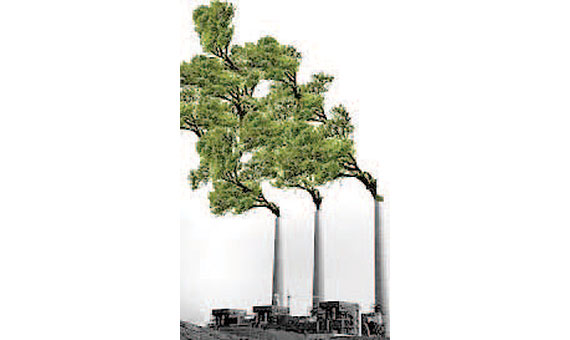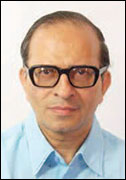Azadi ka Amrit Mahotsav Kolkata event honours four Clergymen
Pope Francis asks businesses to support working women: They’re ‘afraid to get pregnant’
Study: Christianity may lose majority, plurality status in U.S. by 2070
Indian politician declines Magsaysay Award under party pressure
Like John Paul II, Pope Francis heads to Kazakhstan during time of war


Job Kozhamthadam, SJ
Steven Weinberg, physicist and Nobel laureate, concludes The First Three Minutes, widely acclaimed a classic in scientific cosmology: “The more the universe seems comprehensible, the more it also seems pointless.” But for many other scholars the universe is not a pointless, though complex, machine; it is the masterpiece of the creator –mind-bogglingly complex, amazingly coordinated, incredibly harmonious, ingeniously economical. For instance, take the natural cycles like carbon cycle or oxygen cycle. A natural cycle is a stroke of genius of mother nature, wherein, using limited resources, she is able to perform complex functions unlimited times–animals take in oxygen giving out carbon dioxide while breathing; this carbon dioxide is taken in by plants for photosynthesis freeing oxygen for animals to breathe. Thanks to this and other ingenious devices, the universe, particularly our earth, has been continuing as a well-coordinated, carefully balanced system. If maintained undisturbed, it can go on and function beautifully and dutifully for ages to come. However, any rupture or disturbance to this balanced state due to misuse or overuse of the earth and its environment – soil, water and air – can lead to disastrous environmental or ecological degradation. Although in the past this balance was kept intact, in recent times, particularly after the Industrial Revolution, the situation has changed drastically. The earth together with its environment, “our common home,” is fast deteriorating. As Pope Francis says in his ground-breaking Laudato Si, the earth is “beginning to look more and more like an immense pile of filth.” Today we are faced with a crisis situation, calling for an urgent and decisive response. Since much has been written on the causes of this tragic situation – air and water pollution, Greenhouse Effect, ruptures in the ozone layer, topsoil erosion, poor methods of agriculture, over-production and use of plastics and other non-biodegradable products, luxury-laden lifestyle, irresponsible overpopulation, etc. – we will focus primarily on some of the less known and more controversial contributors to this crisis, particularly the role of science and technology.
Ecological Crisis as a By-product of a Developing Universe in General, Humanity in Particular
Today evolution is being accepted as a universal phenomenon affecting all aspects of the cosmos and human life, although much controversy persists concerning the inner mechanism that powers this complex process. Henri Bergson in his 1907 book Creative Evolution postulates elan vital, a creative principle immanent in all organisms, as responsible for this process. Later the French Jesuit philosopher-scientist Teilhard de Chardin took up this idea and developed his own Law of Complexity-Consciousness, according to which the universe is becoming progressively complex through a process marked by a close correlation between complexity of structure of a being and the level of its consciousness. The more the complexity, the higher the level of its consciousness. Some look upon environmental degradation as a by-product or the price humanity has to pay for this progress. It seems to me that although there is a grain of truth in this view, it is too vague and imprecise to be a satisfying explanation, and so needs much more detailed and accurate study. In any case, even if it is an unavoidable by-product, the problem of ecological degradation is real and alarming and we need to take urgent and necessary steps to stem its tides.
Science and Ecological Crisis
While considering the linkage between modern science and ecological degradation, it seems to me that we need to avoid two extreme views: demonizing science as the villain of this cosmic tragedy, on the one hand, and giving it a clean chit as though it were the whipping boy of this alarming scenario. Imputing all the blame on science in this case would be tantamount to accusing the blacksmith of being the culprit of all the stab cases. Indeed the blacksmith has made the knife; but it can be used to cut vegetables to feed the hungry or to kill an innocent person. The choice is with the person wielding the knife. In the same way science and related technology in general remain neutral. It is the agent who applies it in technology or other practical fields who is primarily responsible for determining the target. In my view science can be considered an occasion, perhaps a very tempting one, rather than a direct cause for harmful consequences like ecological degradation.This role of being an occasion for misuse is not without certain consequences; it imposes a certain responsibility on science and scientists. Just as it is the professional responsibility and personal prudence of the blacksmith not to make a knife for a notorious criminal with a known record of many murders, it is the duty of a scientist to make sure that he/she does not put scientific sources of immense destructive power (e.g., nuclear devices) in the hands of agents who are sure or even prone to misuse it.
Technology, however, which is application of science to practical areas and hence intimately linked to science, has been a collaborator in bringing about ecological disaster. Very often misuse and abuse of technology is the handiwork of profit-hungry entrepreneurs, technocrats and multinational business establishments. Mass production necessitated by consumerism has done irreparable harm to nature because of the need for huge quantities of raw material which had to come from natural resources. Naturally, this leads to disastrous levels of deep-mining and massive-scale felling of trees, etc., thereby upsetting biodiversity and balanced growth and healthy maintenance of the earth and its environment. In all these modern technology has played a role.
Also, there are areas wherein science and scientists could have done better. Scientists could have engaged in better and stronger advocacy against the misuse of their theories and products. Scientists are highly respected the world over, and their words and views carry power and weight. It is indeed true that some scientists have raised their voice for this cause, but such cases seem to be somewhat rare and often subdued. Since modern technology is the direct outcome of science, I think that scientists should have been more vocal and fearless. Secondly, scientific technology could have played a pivotal positive role in this context: technology could have taken the direction of undoing the harm done to nature and also used its resources positively to build a healthier environment. No doubt, in this field also some work has been done. But it seems to me much more could and should have been done.
Science as a Saviour and Benefactor of a Healthy Environment
Science’s involvement in the area of environmental concern is very special and peculiar. We have seen that it can be an occasion or indirect cause for misuse and harm. It can also be an agent capable rectifying the harm done to nature, and also be an efficient helper to build a better earth and a healthy environment. To mention a few such possibilities, science can develop better ways of waste management so that waste products, one of the principal causes of pollution, can be made useful. In the field of pest and viral infection and destruction of trees also scientific research can make valuable contribution towards growing more healthy trees and plants. For instance, in India coconut trees, pepper plants, mango trees, etc., are infested with various pests and viruses and are regularly dying out. By targeting its research in these areas science can help in the growth of more trees and plants. Recent developments in genetics can be used effectively for controlling the growth and spread of insects and pests that are harmful to the environment. For instance, in recent times research and study is going on to rid nature of harmful mosquitoes with the help of gene editing using the technique of CRISPR case.
Oil spill is a principal source of water pollution. Here too science can make a substantial contribution to clean up the water sources. Much research has already been done in this area, and science has identified oil eating microbes like A. Borkumensis. Further study and research can help put an end to water pollution. In our energy-starved industrial world fossil fuel consumption has become a major source of ecological destruction. At the same time so much of solar and wind energy are simply left unexplored and unused. Developed countries like Germany and so on have gone to harness this free and clean energy resource in a big way. But highly polluted countries like India lag far behind in this area. If simpler and easier methods of harnessing this energy source are developed through serious scientific research, tremendous relief from air pollution can be achieved, particularly in tropical countries like India where abundant sunlight is available almost all through the year. Thus science and technology, when carried out in the right way, can be a great saviour and benefactor of the environment.
Conclusion
There is no doubt that in the past and even now science, mainly through the wrong use of its technological arm by vested interests, has been party to causing damage to the earth and its environment. But we have seen that it also has tremendous potential not only to correct this mistake, but also help build up a healthier and happier ecosystem. But this momentous and urgent task requires the cooperation and contribution not only from science and scientists, but also from each one of us. Just as the earth and its environment is our common home, preserving and further developing it is also our common mission and task. The more we contribute to this responsibility of ours, the healthier our planet becomes, and the happier the present and future of humankind.
Leave a Comment